25+ SAMPLE Construction Audit Report
-
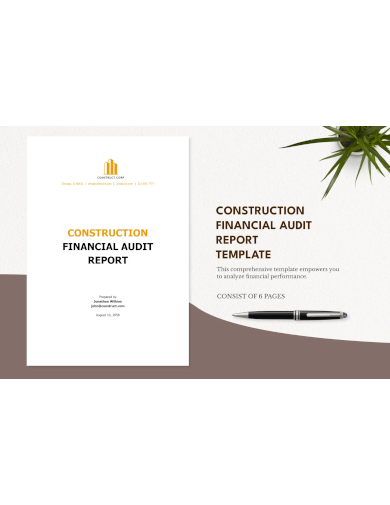
Construction Financial Audit Report Template
download now -
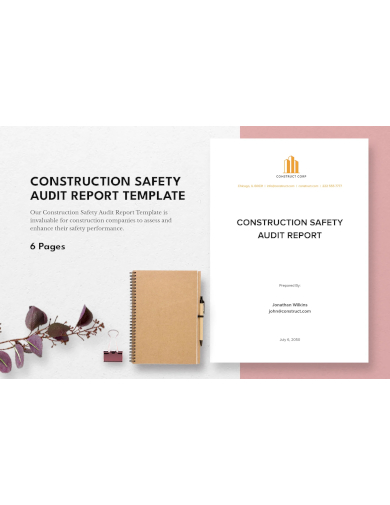
Construction Safety Audit Report Template
download now -
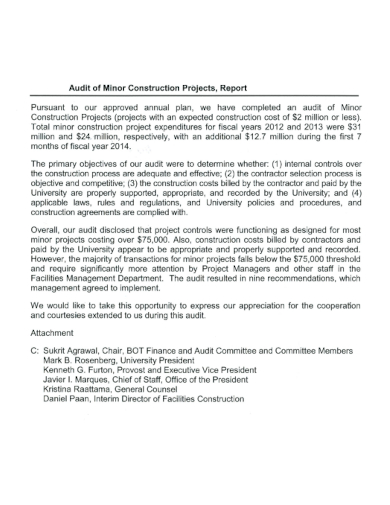
Construction Audit Project Report
download now -
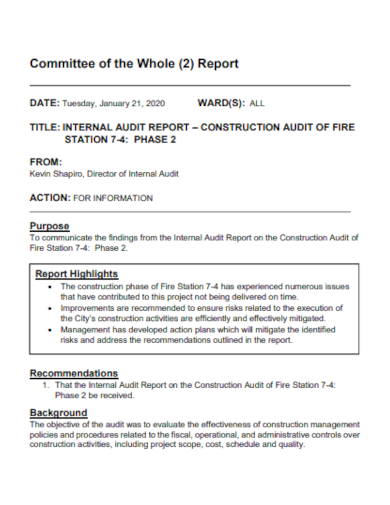
Construction Committee Audit Report
download now -
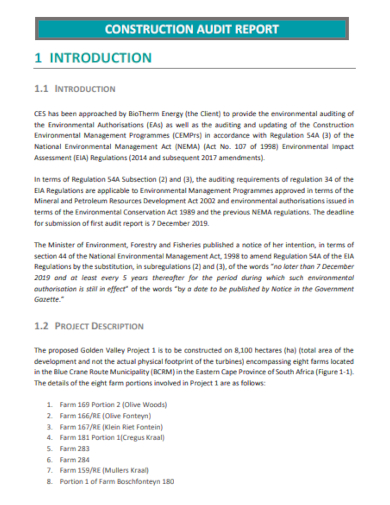
Construction Program Audit Report
download now -
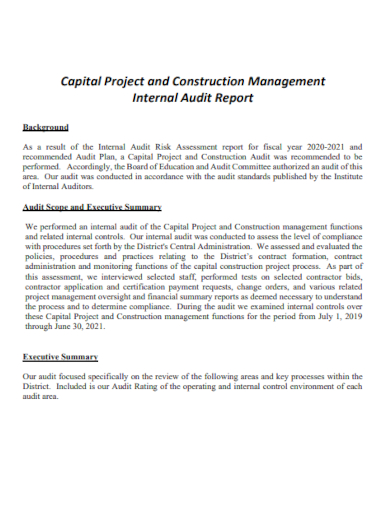
Construction Management Audit Report
download now -
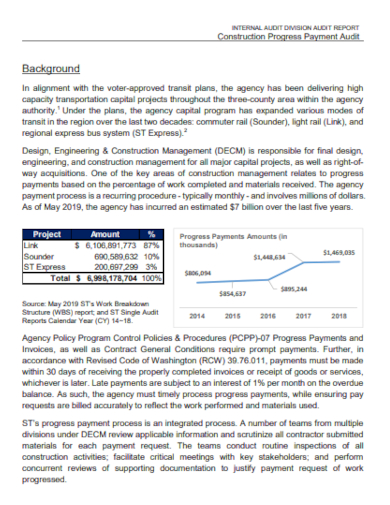
Construction Progress Audit Report
download now -
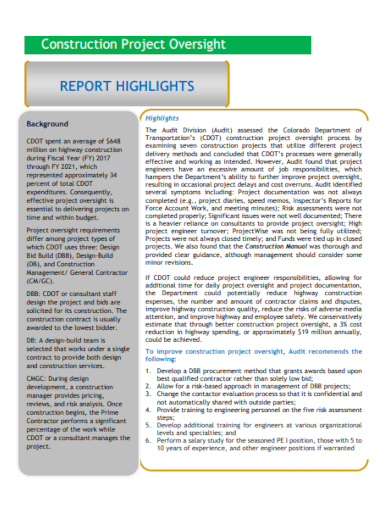
Construction Project Oversight Audit Report
download now -
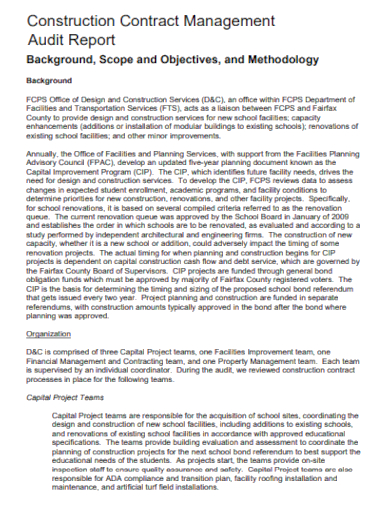
Construction Contract Audit Report
download now -
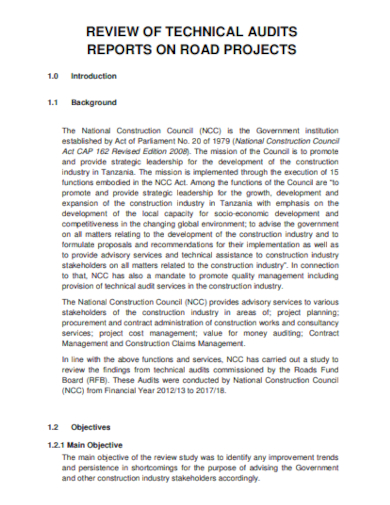
Road Construction Audit Report
download now -
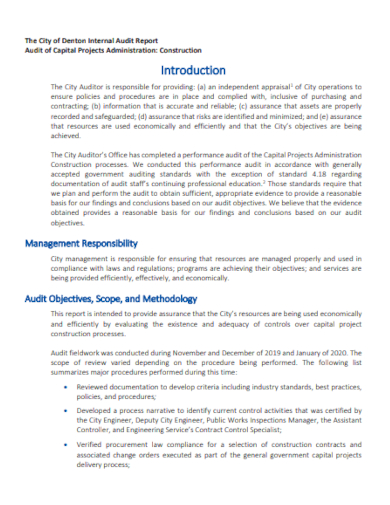
Construction Administration Audit Report
download now -
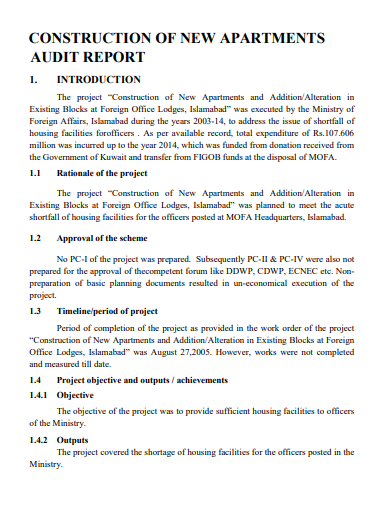
Apartment Construction Audit Report
download now -
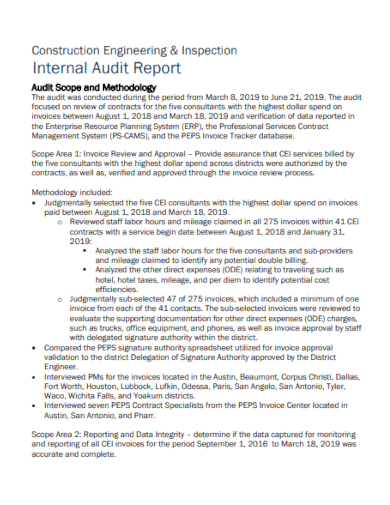
Construction Engineering Audit Report
download now -
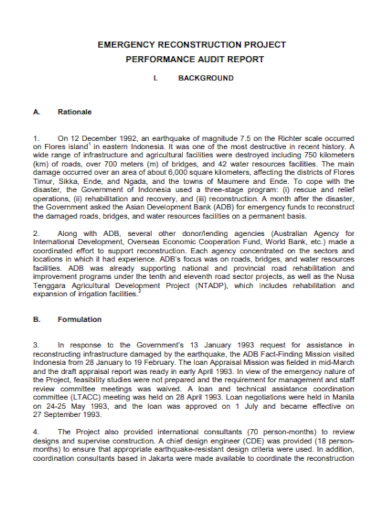
Emergency Construction Audit Report
download now -
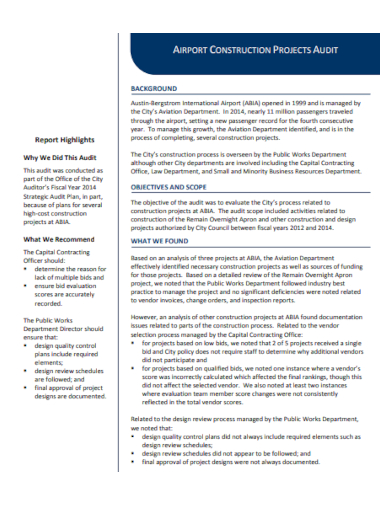
Airport Construction Audit Report
download now -
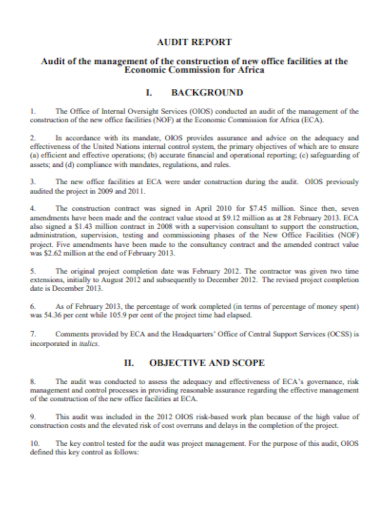
Construction Audit Management Report
download now -
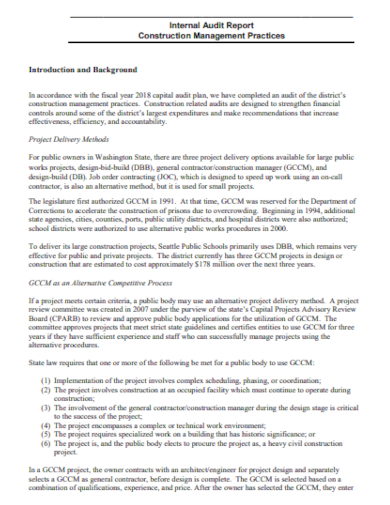
Construction Internal Audit Report
download now -
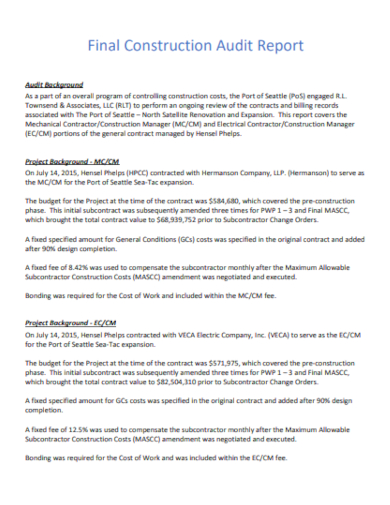
Final Construction Audit Report
download now -
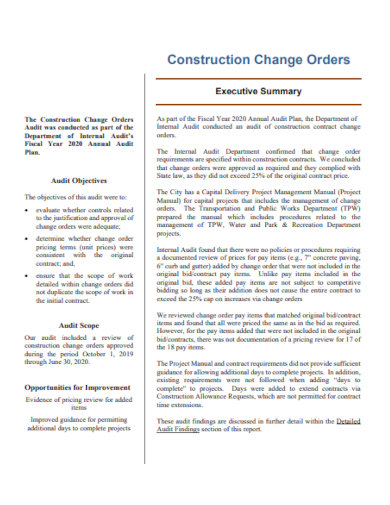
Construction Change Audit Report
download now -
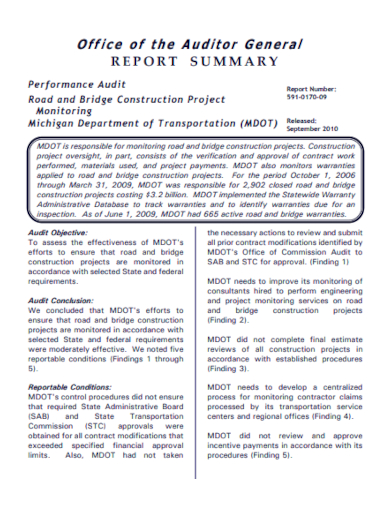
General Construction Audit Report
download now -
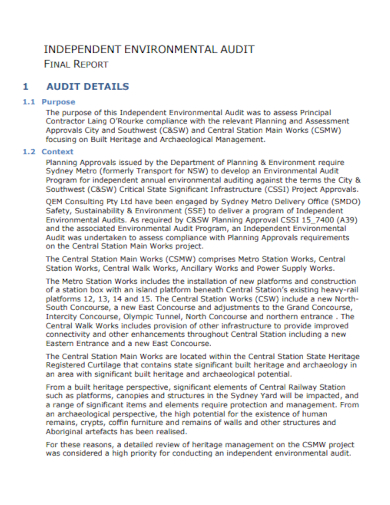
Construction Environmental Audit Report
download now -
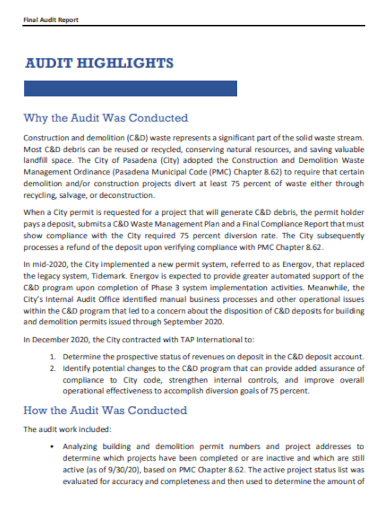
Construction Final Audit Report
download now -
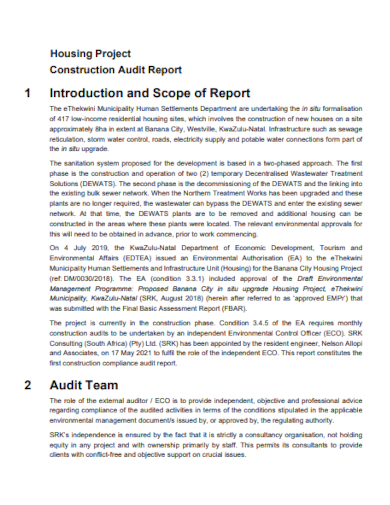
Housing Project Construction Audit Report
download now -
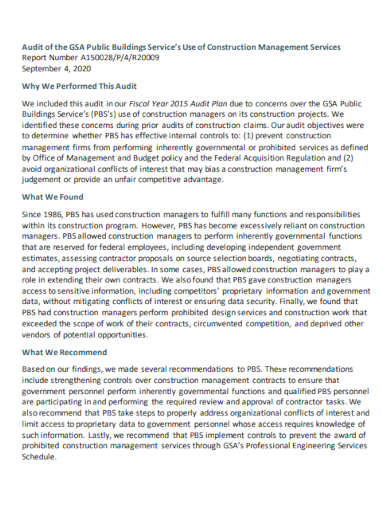
Construction Services Audit Report
download now -
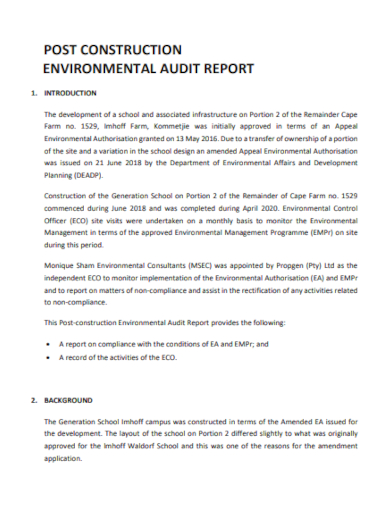
Post Construction Audit Report
download now -
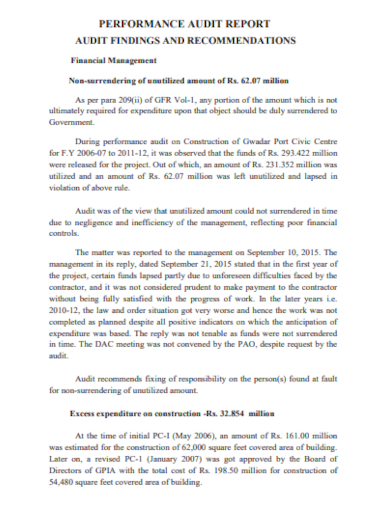
Construction Financial Audit Report
download now
FREE Construction Audit Report s to Download
25+ SAMPLE Construction Audit Report
Definition
Navigating the Intricacies of Construction Management:
Understanding the Purpose of the Construction Audit:
Key Components of a Construction Audit Report:
Benefits of a Comprehensive Construction Audit:
Challenges in Construction Auditing:
Ensuring a Robust Construction Audit Process:
Why is an audit report essential for construction projects?
How frequently should a construction project be audited?
What tools are commonly used in construction auditing?
Can audit reports help in dispute resolution for construction projects?
How does a construction audit report ensure quality assurance?
Definition
A Construction Audit Report is a systematic review of a construction project’s processes and financials. It evaluates the accuracy of financial transactions, compliance with contracts and regulations, and the effectiveness of risk management practices. This document aims to ensure transparency, identify inefficiencies or discrepancies, and recommend improvements, safeguarding stakeholders’ interests and promoting best practices in construction management.
Navigating the Intricacies of Construction Management:
In the vast and intricate world of construction, ensuring financial prudence and adherence to project stipulations is of utmost importance. A construction audit report serves as an instrumental tool in achieving these objectives. Acting as both a compass and a health-check instrument, it meticulously evaluates the various facets of a construction project, from financial dealings to compliance measures. Not only does it unearth discrepancies or inefficiencies, but it also paves the way for improved construction practices. Whether you’re an investor, project manager, or a stakeholder looking to understand the gravity and utility of this tool, this guide elucidates the critical components and benefits of a construction audit report.
Understanding the Purpose of the Construction Audit:
The construction industry involves significant capital, numerous stakeholders, complex processes, and a range of potential risks. This makes auditing a crucial function to ensure every aspect of a construction project runs efficiently, transparently, and in line with set guidelines.
Scope and Objective:
At its core, the construction audit is designed to review and verify the financial aspects of a construction project. It ensures that costs billed by contractors align with the work done, and the prices pre-established in contracts are maintained.
Purpose of the Construction Audit:
- Financial Accuracy and Transparency: One of the primary objectives is to ensure that all financial transactions related to the project are accurate. This includes verifying costs, payments to contractors and suppliers, and ensuring there’s no over billing or other financial discrepancies.
- Compliance with Contracts: Audits check if the work being done aligns with the terms and conditions stipulated in contracts. This can involve ensuring that materials used are as specified, timelines are being followed, and payment terms are met.
- Operational Efficiency: By reviewing processes, auditors can identify inefficiencies or redundancies in the construction process. This can lead to recommendations for streamlining operations and potentially saving time and money.
- Risk Management: Construction projects inherently involve various risks. Auditors assess how these risks are managed and whether the strategies in place are effective in mitigating potential pitfalls.
- Quality Assurance: Ensuring the quality of work is paramount. Audits can verify whether the construction adheres to set standards, codes, and best practices, guaranteeing the end product’s longevity and safety.
- Stakeholder Assurance: For investors, lenders, and other stakeholders, an audit provides assurance that their interests are being protected, funds are being used appropriately, and the project is on track for completion as planned.
- Regulatory Compliance: Beyond contracts, construction projects must adhere to local, state, or national regulations and standards. Audits ensure that projects are in compliance, minimizing the risk of legal complications or penalties.
Key Components of a Construction Audit Report:
- Executive Summary: A brief overview of the audit’s scope, objectives, methodology, and primary findings.
- Introduction: Details about the project, including its background, size, cost, timeline, and key stakeholders involved.
- Methodology: Describes the methods and techniques used by the auditors to gather and analyze data.
- Scope of the Audit: Clearly defines the boundaries of the audit, including the period reviewed, specific processes or areas covered, and any exclusions.
- Performance Assessment: This component gauges the efficiency and effectiveness of operations, ensuring that the project adheres to its timeline and quality benchmarks.
- Compliance Check: An essential part of the audit, this evaluates adherence to contract terms, labor laws, safety standards, and other relevant regulations.
- Financial Review: This delves into the cost-related aspects of the project, verifying the accuracy of billed amounts, evaluating change orders, and ensuring that there are no over payments.
- Operational Efficiency: Analysis of workflow processes, resource allocation, and time management to identify potential inefficiencies or areas of improvement.
- Risk Management: Assessment of the project’s risk management strategies, including insurance, safety protocols, and contingency planning.
- Regulatory Compliance: Ensures the project aligns with local, state, and national construction standards, codes, and regulations.
- Quality Assurance: Inspection of work completed to confirm it meets quality standards, safety norms, and project specifications.
Benefits of a Comprehensive Construction Audit:
A comprehensive construction audit offers multiple benefits to stakeholders involved in a construction project, from project owners and investors to contractors and subcontractors. Here are some of the key benefits:
Financial Integrity:
An audit ensures that all financial transactions, billings, and payments are accurate and legitimate. It can identify over billings, duplicate payments, or other discrepancies, protecting stakeholders from potential financial losses.
Enhanced Accountability:
Regular audits create a culture of accountability, where every entity involved knows their actions and expenses are subject to scrutiny. This can deter fraud, wastage, and other unethical practices.
Risk Management:
Through an audit, potential risks, whether they’re financial, operational, or compliance-related, can be identified early. This proactive approach helps in devising strategies to mitigate or eliminate these risks.
Contractual Compliance:
The audit ensures that all parties adhere to the contract’s stipulations, be it regarding quality, materials, timelines, or payments. This minimizes disputes and fosters smoother project execution.
Operational Efficiency:
By examining processes and workflows, audits can pinpoint inefficiencies, redundancies, or bottlenecks. Addressing these can lead to faster project completion and cost savings.
Regulatory Adherence:
Audits verify compliance with local, state, and national construction regulations and standards. This ensures the project avoids legal complications or penalties.
Quality Assurance:
Regular audits can guarantee that the construction meets or exceeds the set standards, codes, and best practices, ensuring the project’s longevity, safety, and value.
Stakeholder Confidence:
A thoroughly audited project builds confidence among stakeholders, from investors and financiers to end-users, assuring them of the project’s soundness and reliability.
Informed Decision Making:
With regular insights into a project’s health, stakeholders can make informed decisions, whether it’s allocating more resources, renegotiating contracts, or changing strategies.
Documentation and Record Keeping:
A rigorous audit process ensures proper documentation and record-keeping, which can be invaluable for future reference, dispute resolution, or even for subsequent projects.
Cost Savings:
By identifying unnecessary expenditures, inefficiencies, or contract breaches, audits can lead to substantial cost savings over the project’s duration.
Future Planning:
Insights from audits can be invaluable for planning future projects, helping stakeholders understand what went well and where improvements are needed.
Challenges in Construction Auditing:
While construction auditing brings numerous benefits, it also presents a set of unique challenges. Here are some of the common challenges faced in construction auditing:
Complexity of Projects:
Construction projects, especially large-scale ones, involve multiple stakeholders, intricate processes, diverse materials, and numerous transactions. This complexity can make the auditing process daunting and time-consuming.
Incomplete Documentation:
A common hurdle in construction auditing is missing, incomplete, or unclear documentation. This can impede the verification process and potentially mask discrepancies.
Rapidly Changing Costs:
The costs of materials and labor in the construction industry can fluctuate due to various external factors. Keeping up with these changes and ensuring billings are accurate becomes challenging.
Technical Expertise:
The technical nature of construction projects requires auditors to have a deep understanding of construction methods, materials, and best practices. Without this expertise, an audit might miss crucial details.
Subjectivity in Quality Assessment:
Evaluating the quality of work can sometimes be subjective, leading to disagreements between auditors and project teams.
Contract Ambiguities:
Vague or poorly drafted contracts can create ambiguities, complicating the audit process when determining compliance.
Time Constraints:
Construction audits, especially if not planned in advance, can disrupt the project timeline. Striking a balance between thoroughness and efficiency is often challenging.
Stakeholder Resistance:
Sometimes, there can be resistance from project teams or contractors, especially if they perceive the audit as a threat or mistrust its intentions.
Interconnected Issues:
Problems in one area of a construction project can ripple into other areas, making it challenging for auditors to pinpoint the root cause of discrepancies.
Technological Challenges:
With the integration of advanced technologies in construction, like Building Information Modeling (BIM) or advanced project management software, auditors need to be familiar with these tools to access and interpret data effectively.
Ensuring a Robust Construction Audit Process:
Ensuring a robust construction audit process is essential to reap the full benefits of the audit and to overcome potential challenges. A rigorous and efficient audit process can provide stakeholders with valuable insights, promote transparency, and safeguard the project’s interests. Here are steps and best practices to ensure a robust construction audit process:
Clear Objectives:
Before initiating the audit, clearly define its objectives. Whether it’s to verify financial accuracy, ensure contractual compliance, or evaluate quality, having clear goals will streamline the process.
Comprehensive Planning:
Detailed planning ensures that the audit covers all crucial areas, is conducted at the right time to minimize disruptions, and is aligned with the project’s scope and complexity.
Qualified Personnel:
Employ auditors with the requisite expertise in construction, finance, and relevant technologies. Their knowledge is crucial in identifying and understanding intricacies specific to the construction industry.
Regular Training:
As construction techniques, regulations, and technologies evolve, regular training ensures that auditors stay updated and can handle modern challenges.
Effective Communication:
Establish open channels of communication between auditors, project teams, contractors, and other stakeholders. This promotes collaboration, minimizes resistance, and ensures everyone is on the same page.
Use of Technology:
Leverage modern technologies like audit software, Building Information Modeling (BIM), and other project management tools. These can streamline the audit process, enhance accuracy, and offer valuable insights.
Standardized Procedures:
Develop and adhere to standardized audit procedures and checklists to ensure consistency and thoroughness across different projects or audit phases.
Risk-based Approach:
Prioritize audit areas based on potential risks. High-risk areas, whether in terms of finance, compliance, or quality, should receive more attention.
Continuous Monitoring:
Instead of waiting for formal audit periods, integrate continuous monitoring mechanisms. This proactive approach can identify issues in real-time, allowing for quicker resolutions.
Transparency:
Ensure the audit process, findings, and recommendations are transparently shared with all relevant stakeholders. This promotes trust and facilitates informed decision-making.
Why is an audit report essential for construction projects?
An audit report is essential for construction projects as it ensures financial accuracy, verifies contractual compliance, identifies inefficiencies, promotes transparency, safeguards stakeholder interests, and fosters accountability, enhancing overall project integrity and success.
How frequently should a construction project be audited?
The frequency of auditing a construction project depends on its size, complexity, and risk factors. Typically, larger projects with higher risks benefit from quarterly or biannual audits, while smaller projects might opt for annual or milestone-based reviews. Always tailor frequency to specific project needs.
What tools are commonly used in construction auditing?
Common tools used in construction auditing include audit software, Building Information Modeling (BIM), project management platforms, financial analysis tools, digital documentation systems, and risk assessment applications. These tools enhance accuracy, efficiency, and comprehensiveness in the audit process.
Can audit reports help in dispute resolution for construction projects?
Yes, audit reports can help in dispute resolution for construction projects by providing objective, documented evidence of financial transactions, contract compliance, and project performance, serving as a neutral reference to validate claims and clarify disagreements between involved parties.
How does a construction audit report ensure quality assurance?
A construction audit report ensures quality assurance by verifying adherence to contract specifications, inspecting work against established standards, evaluating materials used, and assessing compliance with industry best practices, thereby validating the project’s integrity, safety, and overall quality.
In wrapping up, the Construction Audit Report is more than just a review of expenses; it’s a testament to a project’s integrity, efficiency, and adherence to industry benchmarks. Such reports not only safeguard investments but also champion best practices in the construction realm. Their critical role in ensuring transparency and accountability cannot be overstated in today’s complex construction landscape.
